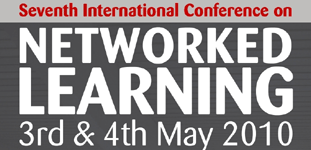

Collective Brokering Practice: A constellation of practices perspective
Fei-Ching Chen, Hsiu-Mei Chang
National Central University, Chung-Li City, Taiwan,
Thomas Wang,
Fu-Jen Catholic University, Taipei, Taiwan
Abstract
This paper studies the activities of boundary-crossing participants in a virtual environment. Research on collaborative learning generally focuses on communication within a group and pays little or no attention to interaction among and between groups, interaction which has conventionally been regarded as irrelevant to learning. Does any learning occur when learners cross group boundaries? When the perspectives of a variety of boundary spanners are introduced, learning becomes richly embedded in the infusion of the constant comparisons of differences which emerge from spanning multiple communities of practice (CoPs).
Traditionally, the broker is the person who has a clear goal in mind for bilateral mediation. Boundary spanners, on the other hand, begin with their personal motives. Once they cross the boundary, they look for whatever they need while at the same time encountering new ground and different conditions. This study considered people in the Cross Group Forum (CGF) to be boundary spanners and discovered a large amount of brokering activity there, where everyone enjoyed his/her freedom and scaffolded each other in a causal way. Boundary spanners have opportunities to form new sociations based on their common needs and become brokers of each other.
Three types of brokering activities have been identified: proactive, intensive and peripheral. Brokering activities can not be viewed as an individual endeavor as defined and dealt with in previous research. Instead, peripheral and intensive brokers contributed their diverse perspectives and problems generated in different CoPs; proactive brokers maintained a collegial and dialogical atmosphere by responding to every posting in a timely fashion. None of them engaged in traditional brokering activities such as agent, translator or coordinator. As a group, they provided a participative connection from which they collectively accomplished the enterprise of brokering. Using the "furnace" as a metaphor to delineate the online collective behaviors of brokers: peripheral and intensive brokers are "firewood collectors", proactive brokers are "warmers", and all of the lurkers in the CGF are "guests". This phenomenon can be designated "collective brokering practice".
Brokers' insights gained from multi-membership were pressed into service and applied when they tried to create satisfying ways of living and functioning in their own Within Group Forums (WGF). This process results in the emergence of new CoPs and exuberant learning -- revealed in constellations of practice.
| About NLC | Welcome Messages| Acknowledgwments | Conference Proceedings| Keynote Speakers| Index of Presenting Authors| Contact |